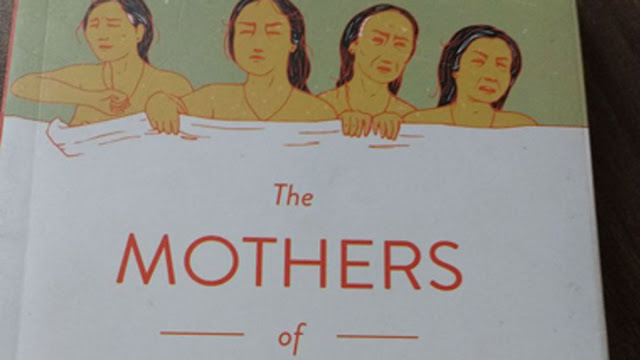- Get link
- X
- Other Apps
- Get link
- X
- Other Apps
Thirteen years ago, on July 15, the world woke up to some shocking images from Manipur. The images were of 12 naked middle-aged women carrying a white banner with “Indian Army Rape Us” painted red on it.
The immediate provocation was the brutal rape, torture,
mutilation and murder of 32-year-old Thangjam Manorama by the 17th Assam
Rifles, the oldest paramilitary force of India.
Manorama was picked up from her home in Imphal, on July 10,
on the pretext of an interrogation and under the assumption of being a
militant, with no incriminating evidence whatsoever. Her body was found the
next day in a field four kilometres from her house.
There were 16 bullets lodged into her genitals, gash marks
(presumed to be from a knife) on her thighs, and several deep wounds and
bullets throughout her body. The autopsy confirmed Manorama as being raped
multiple times and then being shot in her genitals.
This was a boiling point for the Mothers of Manipur - the
Meira Paibi.
Meira Paibi, which means women torchbearers in Manipuri, is
a women’s civil rights group that was started way back in 1977 as a coalition
of normal middle-class women in a spirit of solidarity and protection. The name
derives from a practice that the Meira Paibi do, which is to carry torches
throughout the night in groups as a way of protection and as a symbol of
protest against the repeated rapes committed by the Indian Army on unsuspected,
innocent women.
Soon after word spread about the horrific fate of Manorama,
on July 15, 12 women of Meira Paibi did something remarkable. They all
assembled outside the Assam Rifles headquarters in Kangla Fort, Imphal, and
stripped all their clothes and screamed slogans of “Indian Army rape us… we all
are Manorama’s mothers” and “Kill us. Rape us. Flesh us.”
The anger and rage was palpable in the environment.
Everybody was stunned, including the officers of the Assam Rifles.
By using their bodies from a site of sustained vulnerability
to an entirely different kind of strengthened vulnerability, they challenged
years of sexual violence by the Indian Army. They used their own body as a
powerful tool of protest and resistance against years of sustained violation
and humiliation.
“They had their weapons, we only had our body... Together
the mothers gave a war cry,” recalls Soibom Momon Leima in an interview.
The mothers had not told anyone in their family before
actually protesting outside the Kangla Fort. They were working class
middle-aged women who we all can relate to (but for the sustained sexual
violence they and their family face).
 |
| The perpetrators are the same people who are valourised and celebrated every day without critique or question. Photo: Reuters |
Gyaneswari, recalls touching her husband’s feet before leaving home that day as she had not confided in him what she was going to do. “We could easily be molested or raped. Why then should we not walk in the streets naked?” she asserts.
Soon after the protest, the 12 mothers were arrested and
jailed for three months, but it was just the beginning of an unprecedented line
of protests in Manipur. The Assam Rifles were forced to vacate the Kangla Fort
soon after, and the AFSPA removed from seven Assembly segments in the Imphal
Valley, though it remained in the rest of Manipur.
The perpetrators are the same people who are valourised and
celebrated every day without critique or question. Of course, no doubt, the
sacrifice of many members of the Indian Army is venerable, but does that
necessarily mean the crimes committed by them, brutally so, must be excused or
condoned? Is that what a democracy entails? Then what is the difference between
a constitutional democracy and a land that is governed by martial law?
Manipur is one those territories which is under the rule of
the draconian Armed Forces Special Powers Act (AFSPA). Under the AFSPA, no
member of the Armed Forced may be prosecuted without sanction from the Union
home ministry or Union defence ministry.
In July 2016, in an interim judgment based on a petition
filed by the Extrajudicial Execution Victim Families’ Association Manipur
(EEFVAM), the Supreme Court hauled up the Indian Army heavily for a great
amount of excesses and extra-judicial killings committed by the force.
The petition demanded that investigations be conducted into
1,528 cases of extra-judicial and unwarranted killings committed by the Army.
The same court had, in 2014, awarded a Rs 10 lakh compensation to the family of
Manorama.
The Supreme Court also condemned the use of extra-force by
the Indian Army and stated that they will not be permitted henceforth to use
extra-force unless and until they do so for their defence. Whilst such a
position of the court is welcome, it is far from being cathartic.
Sanctions to prosecute is still abysmally low, as has always
been since Independence. If that be the case, what would be the benefit of tokenistic
guidelines? The central government, outraged with even this position of the
Supreme Court, has filed a curative petition to allow the armed forces to use
force as they deem fit.
Sexual violence is a tool used by the Indian Army and one
must reckon that the Army, which is so valourised, eulogised and patronised, is
also prone to killing innocent people, raping and mutilating the bodies of
innocent women and torturing in the name of interrogation. It is but sheer
hypocrisy and unbridled nationalist, megalomaniac ego to not critique where
critique is necessary.
Till date, the killers of Manorama have not been
apprehended. The blood is on our hands who turn a blind eye to these instances,
just as much as it is on theirs - for we are the reason, the perpetrators in
green enjoy immunity.
By Sabarish Suresh
Source: www.dailyo.in
By Sabarish Suresh
Source: www.dailyo.in

Comments
Post a Comment